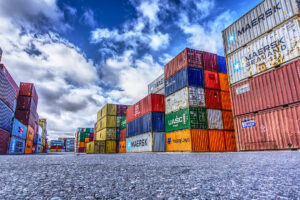Finding the right institutional framework for a blue economy

THE IMPORTANCE of the blue economy for the Philippines was recognized by President Ferdinand R. Marcos, Jr. himself when in his Second State of the Nation Address (SONA) on July 24, 2023, he asserted, “The potential advantages of such enlightened policies extend to jobs and livelihood, with the unlocking of the development of the green and blue economies.”
Pertinently, the Department of Science and Technology recently launched Pagtanaw 2050, a strategy document which defines the blue economy as “an overarching operational area that highlights the Philippines’ inherently archipelagic nature and resources, pointing towards the sustainable use of marine resources — living and non-living — for the improvement of people’s livelihoods while preserving the overall health of our marine ecosystems.”
The blue economy encompasses multiple interdependent subsectors. These are traditional industries dependent on the marine environment such as fisheries, aquaculture, coastal tourism, and maritime transportation. For some coastal countries, the blue economy may also include seabed mining, marine biotechnology, offshore renewable energies, and ship building. Each subsector functions separately from the others, but there are common key elements that necessarily connect all of them to each other.
Proper governance of the blue economy involves a range of normative, regulatory, economic, and policy frameworks. It requires nurturing specialized linkages amongst various agencies within the National Government and streamlining relations with local governments. More crucially, it also entails managing international networks and obligations, such as those covered by the United Nations Convention on the Law of the Sea and the 2030 Sustainable Development Agenda and Goals.
President Marcos’ exhortation concerning the importance of the blue economy for the Philippines in his SONA effectively elevated the importance of House Bill (HB) No. 9662, or the Blue Economy Act. In fact, this bill is part of the list of priority legislations set by the Legislative-Executive Development Advisory Council. HB No. 9662 aims to establish an institutional framework for a blue economy and is expected to be passed within the year.
Notably, there have been similar bills filed before HB No. 9662, but none of them were treated with this level of urgency by Malacañang and Congress. Curiously, however, HB No. 9662 contains a significant departure from its previous iterations, which may adversely impact the country’s maritime ambitions.
All the bills filed in relation to devising an institutional framework for the blue economy are fully cognizant of this sector’s vital components. This is a testament to the technical, practical, and historical suitability of adopting the blue economy perspective. The major difference between HB No. 9662 and the previous bills is the very office tasked to manage the sector.
Most of the blue economy bills filed before HB No. 9662 prescribed the creation of a department level office to be responsible for the crafting and implementation of policies in this field. Meanwhile, HB No. 9662 merely proposes the renaming and reconstituting of the National Coast Watch Council, which was created by Executive Order No. 57 in 2011.
As per the bill, the revamped National Maritime Council’s functions will be expanded to include the formulation of an integrated strategy to promote blue economy and ecosystem-based management of coastal and marine resources.
The Executive Secretary is the head of this bolstered council with various department secretaries, such as those of the National Economic and Development Authority or NEDA, the Departments of National Defense, Environment and Natural Resources, Justice, Interior and Local Government, and Foreign Affairs, and the National Security Council, among others, as its members. The Bureau of Fisheries and Aquatic Resources is the only member which is not a department level office. But all the members essentially hold this particular posting in an ex officio capacity.
This means membership in the National Maritime Council is merely an additional responsibility for each of the members. Their job in the council is to be treated as an adjunct to their office’s principal mandate. Simply put, the blue economy will not be their main work.
On the other hand, a department level office would mean the exact opposite. A specifically designated department for the blue economy means an office completely and primarily dedicated to achieving the nation’s maritime ambitions.
Moreover, a department would be part of the president’s Cabinet. Its head, the department secretary, will be constantly and directly in touch with the Chief Executive through informal powwows and during regular Cabinet meetings. Hence, the quick resolution to any issues related to the blue economy is always within reach.
While the National Maritime Council will still be linked to the President, it will not be automatically part of the Cabinet. Hence, it will not have that direct and immediate line to the Chief Executive. Swift action to address blue economy related concerns may not always be possible.
But the main difference between a department and a council would be how decisions are reached. The former is a singular office devoted principally to making critical and strategic determinations for the blue economy sector. Whereas the latter is effectively just a committee of various offices given the additional task of taking cognizance of blue economy considerations.
Obviously, the department is in a better position to make appropriate and timely decisions than a council. A department secretary can have all the necessary information on hand to make the right call at any given moment. A council, with essentially part-time members, would more than likely take a long time to even just convene and would probably take ages to arrive at a resolution.
However, the issuance of Executive Order No. 57 (series of 2024) renaming and reconstituting the National Coast Watch Council to the National Maritime Council necessitates a recalibration in enacting HB No. 9662. With this new set up, the Marcos administration has effectively narrowed the scope of this office to maritime security. Therefore, it seems only sensible for lawmakers to make the corresponding change to the envisioned blue economy law.
The statute must establish a centralized decision-making authority because the blue economy is complex and multi-faceted. But the web of interactions inherently present within the sector also demands the whole-of-government mindset. And as shown here, a department level office is really the better fit to meet these good governance requirements.
Michael Henry Yusingco is a law lecturer, constitutionalist, and senior research fellow at the Ateneo Policy Center.




